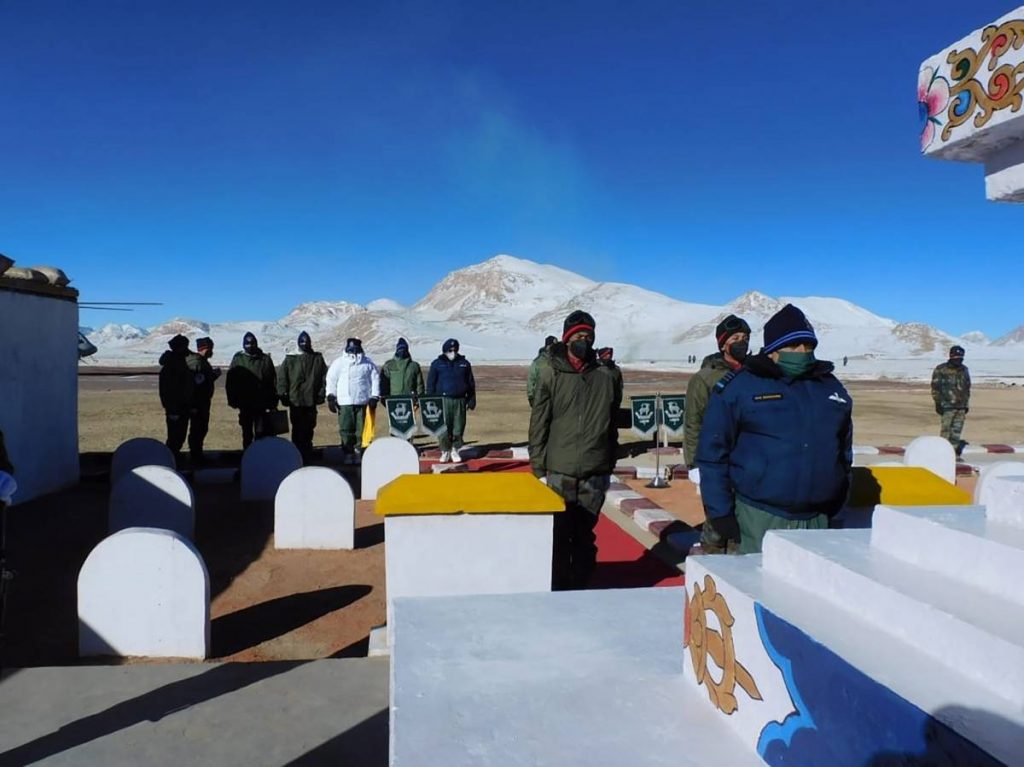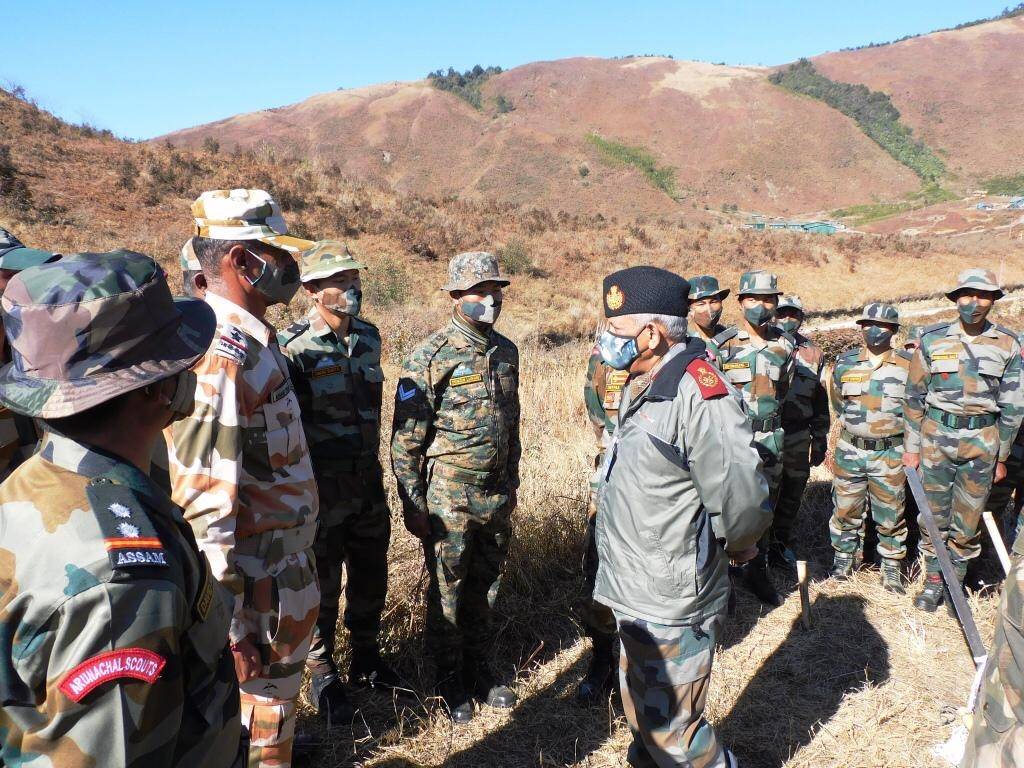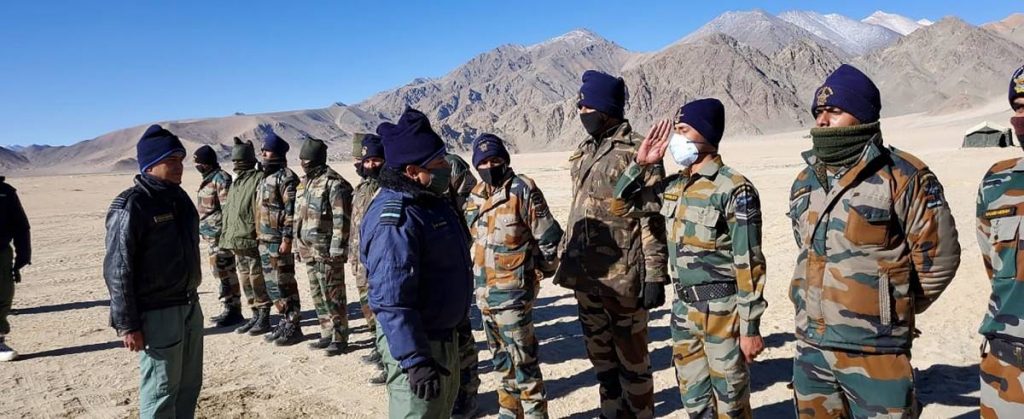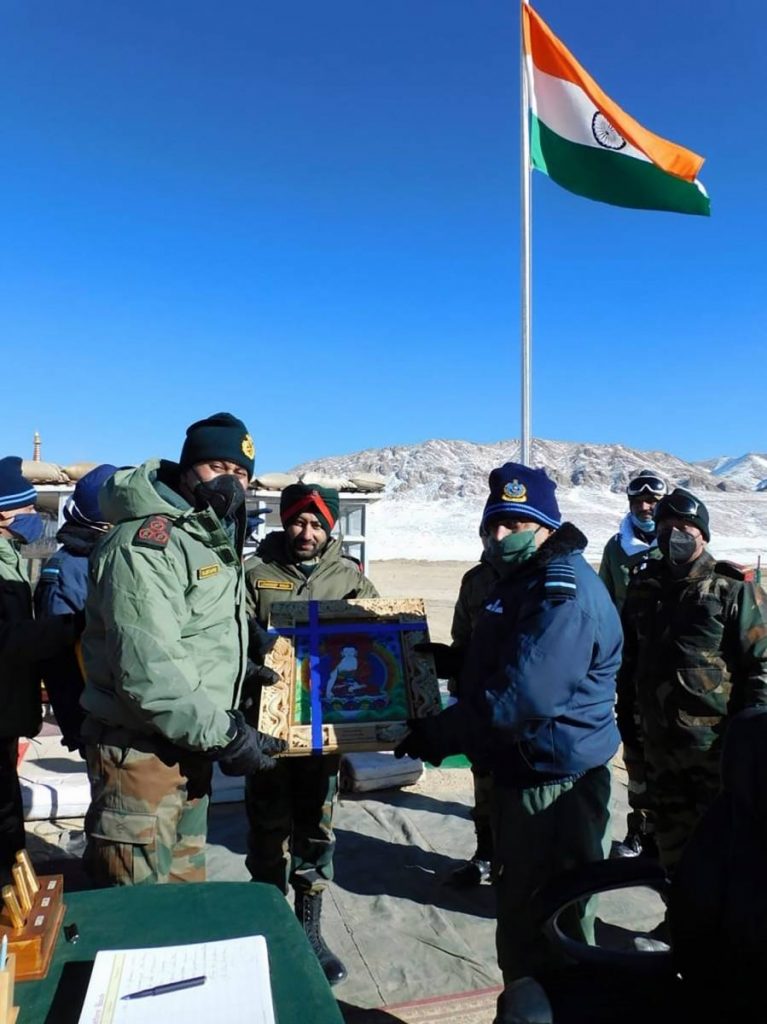
Amid the border dispute with China, Chief of Defence Staff General Bipin Rawat is on a two-day visit to eastern Ladakh to assess and review ground requirements of the force deployed at forward locations in freezing temperatures.
He is being briefed by 14 Corps commander and other commanders on the ground. This comes soon after his visit to forward areas in Arunachal Pradesh.
Gen Rawat had visited forward air bases in Arunachal Pradesh and interacted with soldiers of the Indian Army, Indo-Tibetan Border Police and Special Frontier Force deployed there.

He also visited forward most air maintained posts in Dibang Valley and Lohit sector of Arunachal Pradesh. Gen Rawat has completed one year as Chief of Defence Staff.
On the current standoff with China, last year General Rawat had reiterated that India has military options to deal with the Chinese on the issue of transgressions if talks between both countries at the military and diplomatic level do not yield results.
India and China are engaged in a border standoff since April-May over the transgressions by the Chinese PLA in multiple areas in eastern Ladakh.
IAF operational preparedness
Air Chief Marshal R.K.S. Bhadauria on Monday reviewed operational preparedness and the status of deployed forces at the Indian Air Force bases in the forward areas of Ladakh.
His visit came at a time when Chief of Defence Staff General Bipin Rawat is on a two-day visit to Ladakh to assess and review ground requirements of the forces deployed at the forward locations in freezing conditions.

Bhadauria undertook a visit to Air Force stations and advanced landing grounds in Ladakh. He also interacted with IAF and Indian Army personnel deployed at these locations.
During his visit to Thoise, he reviewed the ongoing logistic operations for support and sustenance of troops in the winter season.
He also visited Daulat Beg Oldi and Nyoma advanced landing ground where he was given a security overview of the respective sub-sectors.
At Daulat Beg Oldi, Bhadauria laid a wreath in homage to the fallen heroes. Prior to his departure, he joined General Rawat for a comprehensive discussion on operational matters with senior IAF and Indian Army commanders at the Air Force station in Leh.

Bhadauria conveyed his deep appreciation for the exceptionally high levels of morale and dedication with which all personnel continue to maintain operational preparedness despite the harsh weather and an inhospitable terrain.








